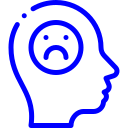A life-threatening event or terrifying occurrence can cause the onset of post-traumatic stress disorder (PTSD), which is a kind of severe anxiety disorder. Flashbacks, insomnia, low self-esteem, and a wide range of painful or unpleasant feelings can all be symptoms of PTSD, which can also lead to substance abuse and other mental health conditions.
Therapy for PTSD has goals for better management of symptoms, acquire coping skills, and regain self-confidence. Cognitive behavioral therapy and psychotherapy can be used to alter the negative mental processes that are interfering with your life. This may be accomplished through discussing your trauma or focusing on the source of your concerns. Depending on your circumstances, group or family therapy may be a better option for you than individual counseling.








